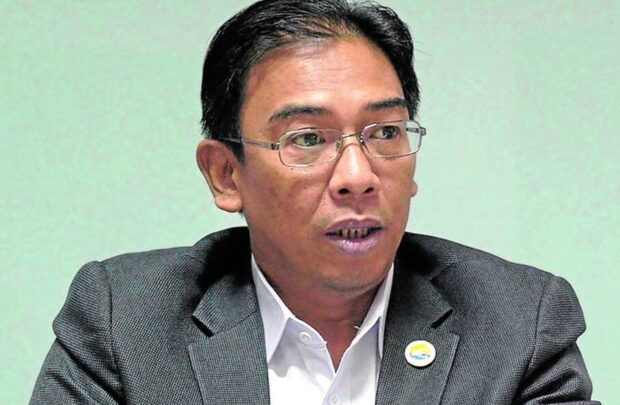
Commission on Human Rights chief Richard Palpal-latoc (Photo from the CHR Facebook page)
MANILA, Philippines — The Commission on Human Rights (CHR) on Tuesday said it was “willing to cooperate” with the International Criminal Court (ICC) on its investigation into the country’s drug war on the watch of then President Rodrigo Duterte.
CHR Chair Richard Palpal-latoc said, however, that the commission does not know yet which specific cases the ICC would look into. He also said the court had not yet sought the commission’s assistance regarding any case.
The last development so far regarding the ICC was when its Appeals Chamber on July 18 voted 3-2 to reject the Philippine government’s appeal to stop the investigation into the drug war.
The ruling affirmed an earlier decision in January by the Pre-Trial Chamber to authorize an inquiry into the drug war, because of what the chamber deemed to be the Philippine government’s lack of willingness to investigate or prosecute the related crimes.
The decision also opens a new stage in the drug war case, with ICC Chief Prosecutor Karim Khan having the leeway to pursue the prosecution of certain individuals.
If Khan pursues charges, human rights lawyer Neri Colmenares said these could fall on Duterte and his Philippine National Police chief at the height of the drug war, Sen. Ronald dela Rosa — who are seen as the chief enforcers of the antidrug campaign which had claimed tens of thousands of mostly poor victims.
Palpal-latoc told reporters that “if the ICC will request us to help them [provide] the evidence we have gathered in the cases we have already investigated, we can share it.”
“If our participation would help find a solution to the problem of human rights affecting Filipinos, we will perform our mandate,” he added.
“We have an independent mandate to look into human rights concerns of the Filipinos here and abroad,” Palpal-latoc also said.
Public documents
The human rights chief noted further that cases being investigated by the commission involve public documents, “so I don’t see any limitation there.”
According to a 2022 report, the CHR has looked into 882 cases involving 1,139 drug war victims — figures that are a mere fraction of the tens of thousands of deaths linked to that campaign.
Nevertheless, the CHR’s report said the PNP had used “excess, unreasonable force” and had an “intent to kill” suspects during drug-related operations.
The commission, however, does not have access to police reports in connection with drug cases. Neither has it been invited to take part in a review of the drug war led by the Department of Justice.
Still, Palpal-latoc said the CHR would cooperate with the ICC, “as it is part of our mandate as a national human rights institution [and as an] independent constitutional body that is not dependent on the directive of the President [or] the Executive department.”
ICC’s investigation will cover the period from Nov. 1, 2011, to March 16, 2019, the day before Duterte notified the United Nations that the country was withdrawing from the Rome Statute of 2002 which established the ICC.
It was in 2011 when the country ratified the Rome Statute. Duterte was still mayor of Davao City and alleged death squads were already being attributed to his local rule.
The ICC is asserting jurisdiction over cases involving crimes against humanity in the Philippines during that nearly eight-year period, but the government has repeatedly rejected its authority.
President Ferdinand Marcos Jr. on July 21 — three days after the government’s appeal to stop the ICC investigation was rejected — said: “We’re done talking with the ICC. Like what we have been saying from the beginning, we will not cooperate with them in any way, shape, or form.”
“We have no appeals pending. We have no more actions being taken. So, I suppose that puts an end to our dealings with the ICC,” he also said.
Marcos appointments
The CHR’s relations with Malacañang have been tested under two consecutive administrations, particularly during Duterte’s term.
In September 2017, his congressional allies, in an apparent gesture of spite, gave the commission a budget of P1,000, before finally approving a P509-million budget by the end of that month.
Under Marcos, the CHR had remained without a head after his oathtaking as president until September last year, when he appointed Palpal-latoc and Beda Epres, also a lawyer, formerly connected with the Ombudsman, to the commission.
Human rights advocates immediately criticized the appointments, saying that Palpal-latoc, a former prosecutor, had no background in human rights. The group Karapatan also described him as a “political appointee” after he had served as a deputy of then-Executive Secretary Victor Rodriguez, who was also his law firm partner.
As CHR chief, Palpal-latoc has urged the government to cooperate with the ICC and even rejoin the Rome Statute, saying, “This will show the genuine intention of the government to comply [with its international obligations].”
Palpal-latoc had said his agency was working to develop rules of procedure for “strategic litigation” of human rights cases after he pointed out that the CHR’s function was merely recommendatory and not prosecutorial.
He said strategic litigation would allow the CHR to extend legal assistance to victims of human rights abuses or, under extraordinary circumstances, even stand in as a nominal complainant.
In undertaking those options, the CHR’s goal, Palpal-latoc said, is to create “court-ready reports” that could stand a chance in the trial.